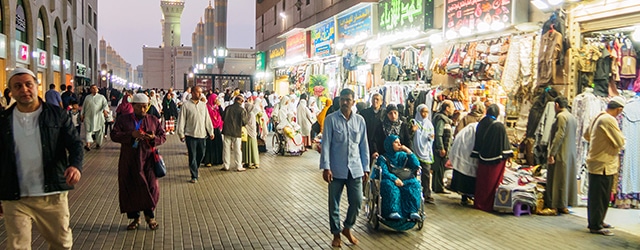A new crown prince is in a stronger position to implement the Saudi’s ambitious Vision 2030 program.

Return to GCC Report
Saudi Arabia appeared to take a U-turn on economic reforms this spring, when King Salman bin Abdulaziz Al Saud rolled back wage and benefit cuts imposed on top ministers and other public workers. Economists say, however, that reforms are still moving in the right direction, and the promotion of Mohammed bin Salman to next in line for the throne will boost their forward momentum. Meanwhile, the National Transformation Program to implement Saudi Vision 2030 has been expanded, with 10 new initiatives.
“The wage and benefit cuts imposed last October were one of the more unpopular measures under the reform program,” says Jason Tuvey, Middle East economist at Capital Economics. “The government has its ear to the ground, and it responded quickly to an outcry on social media about the cuts.”
Approximately 70% of Saudi nationals with jobs work for the government. The decision to restore benefits could lift consumer spending, providing a boost to the Saudi economy, Tuvey says. In the long term, however, economic growth is likely to remain sluggish and unemployment high, due to cuts in crude oil output as agreed by OPEC, he says.
The Saudi Council for Economic and Development Affairs, headed by crown prince Mohammed bin Salman, the powerful 31-year-old son of King Salman, announced that it will implement 10 new programs in the third quarter of 2017 to strengthen the objectives of Vision 2030. These new programs include more options for Saudis to own their own homes, more services for religious pilgrims and the development of a stronger national identity, based on Islamic values, that will make Saudis more optimistic and motivated to succeed, CEDA says.
The new programs will also strengthen the role of the Public Investment Fund, which aims to become the world’s largest sovereign wealth fund once it takes control of Saudi Aramco, the national oil company. Other aims include developing Saudi capital markets, improving the leadership of Saudi-based companies, developing infrastructure and logistic services, and enhancing the role of the private sector. CEDA says it will monitor the progress of these plans to mitigate any negative consequences to the economy that emerge during the execution.
Full implementation will depend on the success of an IPO next year of a minority stake in Saudi Aramco. The sale, of about 5% of the company, could raise about $100 billion and put a valuation of perhaps $2 trillion on the company. “The ongoing privatization of state-owned assets, including leading companies, property and other assets, will bring in new and more-diverse revenues for the Saudi government,” the Vision 2030 plan states.
The Public Investment Fund is charged with helping develop entirely new economic sectors and creating durable national multinationals. “We will encourage our major corporations to expand across borders and take their rightful place in global markets,” Mohammed bin Salman said last year in announcing the plan.
Meanwhile, Saudi authorities are continuing their substantial fiscal adjustment, according to a report by economists at Riyadh-based Samba Financial Group. “However, the corollary of this fiscal correction is weak domestic demand,” the report says. “Private investment is being deferred, and households are cutting back on discretionary spending.”
The Samba economists say that overall they are much more confident about the fiscal adjustment plan than previously. “In terms of financing, we think the worst is over, and the unlocking of external sources of credit should allow government savings to stabilize,” they say. Nevertheless, GDP growth has slowed sharply and might well be in reverse now, they add.



